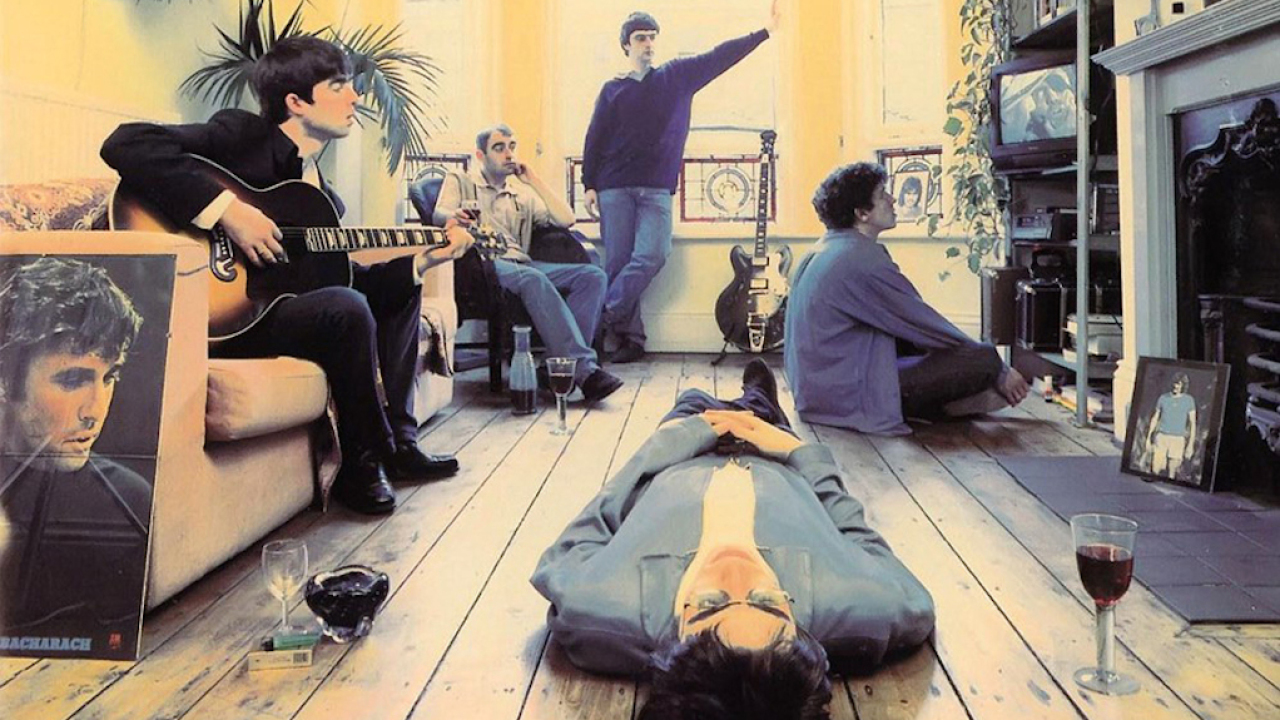“It's about escaping,” said Noel Gallagher in 1994, speaking ahead of the release of Definitely Maybe. But really, it's about so much more than that.
One of the defining documents of the decade, the Manchester quintet’s ferociously optimistic and thrillingly self-possessed debut album is a snapshot of what it means to be young, fearless and fiercely convinced of one’s own capacity to transcend the mundane and mediocre. Twenty years on, its sass, swagger and snap remains undiminished.
Written in the wake of the Conservative party securing a fourth consecutive general election victory in the UK, at its core Definitely Maybe is an album about working class pride, anger, ambition and defiance. Though it’s rarely identified as such, it’s a punk rock album at heart, a collection of dole queue anthems which thrust two upraised fingers in the faces of a firmly entrenched establishment doing its level best to break the spirit and solidarity of working class communities from Barnsley to Belfast. And as such, it’s the most effervescent collection of attitudinal rock n’ roll to emerge from the British isles in the past two decades.
From its opening T. Rex riff, Definitely Maybe is Oasis’ own utterly unapologetic great rock ‘n’ roll swindle, an album which shamelessly pilfers and re-appropriates some of the most familiar riffs, rhythms and themes from rock n’ roll history while looking the listener square in the eyes and asking ‘So. Fucking. What?’
“Look at you now, you’re all in my hands tonight” sneers the then 21-year-old Liam Gallagher at the end of the strutting Rock ‘n’ Roll Star, a self-fulfilling prophecy the younger Gallagher brother has quite correctly identified as “the most arrogant song ever”. Cast your mind back to consider that Gallagher would snarl these lyrics to audiences so small in number that they could comfortably be driven home in the back of a Ford Cortina, while living with his mum on a Burnage council estate, and one can only marvel at the sheer chutzpah involved.
Even the cocksure Gallagher boys, however, would concede that Definitely Maybe is not a flawless collection… though had Gallagher senior swapped out the jokey Digsy’s Dinner and the throwaway Married With Children for contemporaneous B-sides Fade Away and Half The World Away it’d be as close to perfection as makes no difference. As ubiquitous as pub jukebox standards Shakermaker and Supersonic might still be, their vitality and verve is wholly undiminished by over-familiarity, while Gallagher junior’s stretched vowels on the opening lines of Cigarettes & Alcohol remain an undeniable rock ‘n’ roll moment. The MC5/Stooges-inspired Bring It On Down, with its rallying call to the “outcast” and the “underclass”, is the album’s most overtly punk (and political) four minutes, Slide Away seems to consist purely of choruses, each more uplifting than its predecessor, while the six minute Columbia, with its roots in Acid House jams and Ecstasy-fuelled mischief-making, is a blissful tangle of over-driven guitars and wide-eyed euphoria.
Best of all though is Live Forever, arguably Noel Gallagher’s defining song. Written as a response to (erroneous) ‘inkie’ music paper reports that Kurt Cobain was considering naming Nirvana’s third album I Hate Myself And I Want To Die, it’s the Oasis credo writ large, a surge of ‘Fuck you’ positivity and bullish self-belief standing as a grand secular hymn for the dreamers and schemers. Critics have often sneered at Oasis’ nursery rhyme lyrics, but Gallagher – like his nemesis Cobain – intuitively understood that there’s a beauty in simplicity, and Live Forever remains one of his most pure, perfect compositions.
On September 4, 1994, Definitely Maybe debuted at Number 1 on the UK album charts. That evening, Oasis played Belfast for the first time, receiving the news of their triumph as they sat backstage in the Limelight venue’s tiny dressing room. This writer was present that night, and recalls the Manchester band being greeted with an ovation which far exceeded the customary greeting for visiting bands, a reception which spoke of a shared belief that their chart success was a victory for ‘us’ over ‘them’. Years later, even at their most successful, coke-bloated and indulgent, somehow Oasis managed to retain that same sense of connection, thanks largely to an ethos enshrined in their debut album. Because beyond its themes of escape, Definitely Maybe is an album about possibility and hope and growing up without giving in. And while Oasis’ grand adventure may long since have dissolved into cliché and self-parody, their debut remains an impossibly thrilling declaration of independence and intent.

